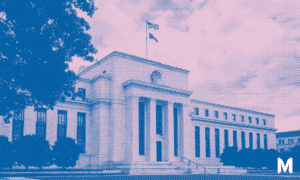A new report by Barron’s states that UK regulators are pushing for regulation that would put a cap on individual bitcoin holdings.
Although the country plans to become a bitcoin and crypto hub, regulations such as these would probably make sure it doesn’t, since high net worth individuals that want to allocate more than 10% of their net worth to bitcoin would likely leave the country.
The new regulation reportedly aims to cap personal bitcoin holdings at 10% of a person’s net worth, to prevent individuals from allocating an oversized amount of money to assets that are “riskier than they realize”.
The Barron’s article cites a source by the FCA (Financial Conduct Authority), that is pushing back against marketing high-risk investments to consumers and aiming to put more protections in place for investors.
The report mentions that “firms marketing some types of high-risk investments will need to conduct better checks to ensure consumers and their investments are well matched.”
The report also mentions that “refer-a-friend” programs for high-risk financial products are now banned in the country.
In another report called “Strengthening our financial promotion rules for high risk investments, including cryptoassets”, the FCA makes the following statement:
“First, the recipient of such a promotion must be categorised as either a certified high-net-worth investor, a certified sophisticated investor, a self-certified sophisticated investor, or a certified ‘restricted’ investor according to our Handbook rules. To be a restricted investor, the individual must sign a declaration to say they have not in the last 12 months, and will not in the next 12 months, invest more than 10% of their net assets (certain assets being excluded from this calculation) in these types of investments.”
However, this report dates back to January 2022. The statement mostly refers to what the FCA calls “Non-Readily Realisable Securities (NRRS)” and Peer-to-Peer (P2P) financial agreements.
Whether bitcoin and crypto would be treated separately is unclear. Would bitcoin fall under the category of a NRRS or P2P agreement? Or would it be treated as a commodity and other assets as unlisted securities?
A quick search for the term “bitcoin” in the 186-page document on high-risk investments and cryptoassets returns no results. One thing seems clear though. If investors were to be limited and could only invest 10% of their net worth in bitcoin in a 12-month period, Great Britain would likely not be so “Great” for bitcoin holders and not become the bitcoin and crypto hub it supposedly wants to become.




